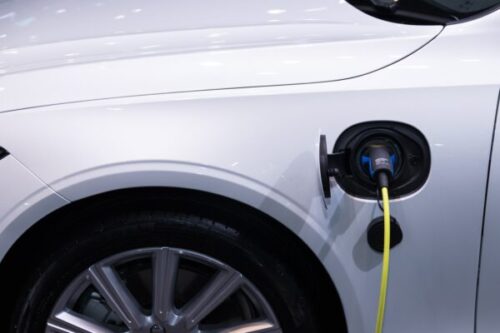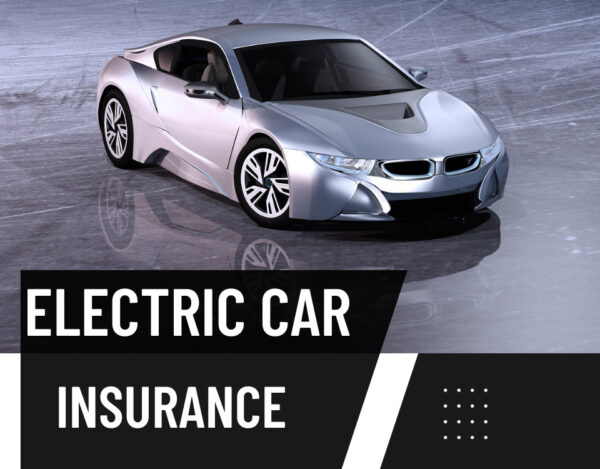Are electric cars expensive to insure?

Florida Regulators Remind Insurers to Take Care of Insureds as Claims Come in
September 6, 2023
Car windscreen repair or replacement: That’s the Question
September 13, 2023Table of Contents
ToggleAre electric cars expensive to insure?
Are electric cars expensive to insure? Yes, electric cars are generally more expensive to insure than conventional gas-powered cars. This is because they are typically more expensive to buy and repair, and insurance companies factor in the cost of replacing the battery in the event of an accident. However, there are several factors that can affect the cost of insurance, so it is important to shop around and compare quotes from different motor insurers.
Why electric cars are more expensive to insure:
Here are some of the reasons why electric cars are more expensive to insure:
- They are more expensive to buy, which means that insurance companies have to charge more to cover their costs.
- They have more expensive batteries, which can be damaged in an accident and are costly to replace.
- They are less common, so there is less data available on their accident rates, which can make insurance companies more cautious.
- They are often driven by more affluent drivers, who tend to have more accidents.

However, there are also some factors that can lower the cost of insurance for electric cars:
- You have a good driving record.
- You have a high deductible.
- You choose comprehensive and collision coverage.
- You live in a low-crime area.
- You have a garage to park your car in.
Why is insurance for EV expensive?
There are a few reasons why insurance for electric vehicles (EVs) is expensive.
- Higher purchase price: Electric vehicle insurance tend to be expensive because of its purchase price. This is because insurance companies based their premiums on the value of the vehicles which called sum insured, and a more expensive car will have higher premiums.
- More expensive repairs: EVs have more expensive parts, such as the battery, which can be damaged in an accident. This can lead to higher repair costs, which are passed on to the insurance company in the form of higher premiums.
- Less common: EVs are still relatively uncommon, so there is less data available on their accident rates. This makes insurance companies more cautious, and they may charge higher premiums as a result.
- Fewer qualified technicians: Fewer qualified technicians can repair EVs, which can lead to longer repair times and higher costs.

Demand for Electric vehicle insurance
Electric vehicles (EVs) are becoming more popular, there is an increased demand for specialized EV insurance. The global market for electric vehicle insurance is predicted to increase by 40.33% between 2021 and 2029, from USD 40.27 billion to USD 687.62 billion.
Here are some of the reasons for the growing demand:
- Increasing adoption of electric vehicles
- Higher cost of electric vehicles
- Complex technology of electric vehicles
- Increasing availability of insurance products for electric vehicles

Does EV insurance differ from conventional auto insurance?
EV insurance differs from conventional auto insurance in a few significant aspects, such as:
- Higher repair costs: Electric vehicles (EVs) have more expensive motors and batteries than conventional vehicles. This implies that EV repairs may be more expensive.
- Increased fire risk: EVs have high-voltage batteries that can catch fire if they are damaged. This means that EV insurance policies typically include coverage for fire damage.
- Lower theft risk: EVs are less likely to be stolen than traditional cars. This is because they are more difficult to hotwire and they are not as valuable to thieves. However, EV insurance policies typically include lower theft coverage than traditional car insurance policies.
In addition to these key differences, EV insurance policies may also include coverage for other specific risks associated with EVs, such as:
- Roadside assistance: EV owners may need roadside assistance if their battery runs out of power or if they experience other problems with their vehicle. EV insurance policies may include coverage for roadside assistance, such as towing and battery charging.
- Charging station damage: EV owners may damage charging stations if they are not careful. EV insurance policies may include coverage for damage to charging stations.
- Battery degradation: EV batteries degrade over time. EV insurance policies may include coverage for battery degradation, such as if the battery loses capacity or fails completely.
when looking for EV insurance It’s important to compare prices from several insurers and to make sure that your plan covers all possible risks related to EV ownership. Additionally, It is also important to consider getting gap insurance, which can assist in covering the difference between the value of your EV and the sum that your insurance provider will pay out if it is totaled.
Here are some further suggestions for EV insurance cost reductions:
- Maintain a safe driving record: Your insurance costs will decrease the safer you drive.
- Combine your renters’ or homeowners’ insurance with your electric vehicle insurance: Many insurance companies give discounts when you bundle several plans.
- Pay your premiums in full upfront: Many insurers offer discounts for paying your premiums in full upfront.
- Shop around and compare rates: EV insurance rates can vary widely from insurer to insurer. It is important to compare rates from multiple insurers before you choose a policy.
By following these tips, you can save money on EV insurance and protect your investment.
Do electric cars increase homeowners insurance?
Electric cars can increase homeowners insurance premiums, but the impact is variable.
Homeowners insurance companies may consider the following factors when evaluating the risk of insuring a home with an electric car:
- The risk of fire or explosion from the high-voltage battery.
- The risk of damage to the home from charging equipment or wiring.
- The value of the electric car and the potential for theft.
The impact on homeowners insurance premiums will vary depending on the specific circumstances of each case. The risk of fire or explosion, for instance, may be higher in homes with garages that have dedicated charging stations. Increased premiums could also be an issue for homes in locations where electric car theft is common.
Electric vehicle owners should speak with their insurance agent to learn how ownership of an electric vehicle may affect their homeowners insurance coverage and prices.

Are electric cars covered by insurance?
Yes, electric cars are covered by insurance. The insurance coverage for electric cars is similar to that of gasoline-powered cars. However, there are some additional factors that insurance companies may consider when pricing an electric car insurance policy, such as the cost of the battery and the availability of qualified repair technicians.
Here are some of the types of insurance coverage that are typically available for electric cars:
Here are some of the factors that can affect the cost of insurance for an electric car:
- The make and model of the car
- The value of the car
- The driver’s age and driving record
- The car’s safety features
- The car’s location
- The car’s battery type
- The car’s charging infrastructure
Conclusion:
- Electric car insurance is similar to gasoline-powered car insurance, but there are some additional considerations, such as the battery and the charging infrastructure.
- The cost of insurance for an electric car can be higher than for a gasoline-powered car due to the car’s higher value, more expensive repairs, and less common accident data.
- You can lower the cost of insurance for your electric car by getting a good driving record, choosing a high deductible, and getting multiple quotes.
- There are also usage-based insurance policies that track your driving habits and charge you based on how much you drive.
- If you are considering buying an electric car, it is important to shop around for insurance quotes and compare different policies to find the best coverage for your needs and budget.




